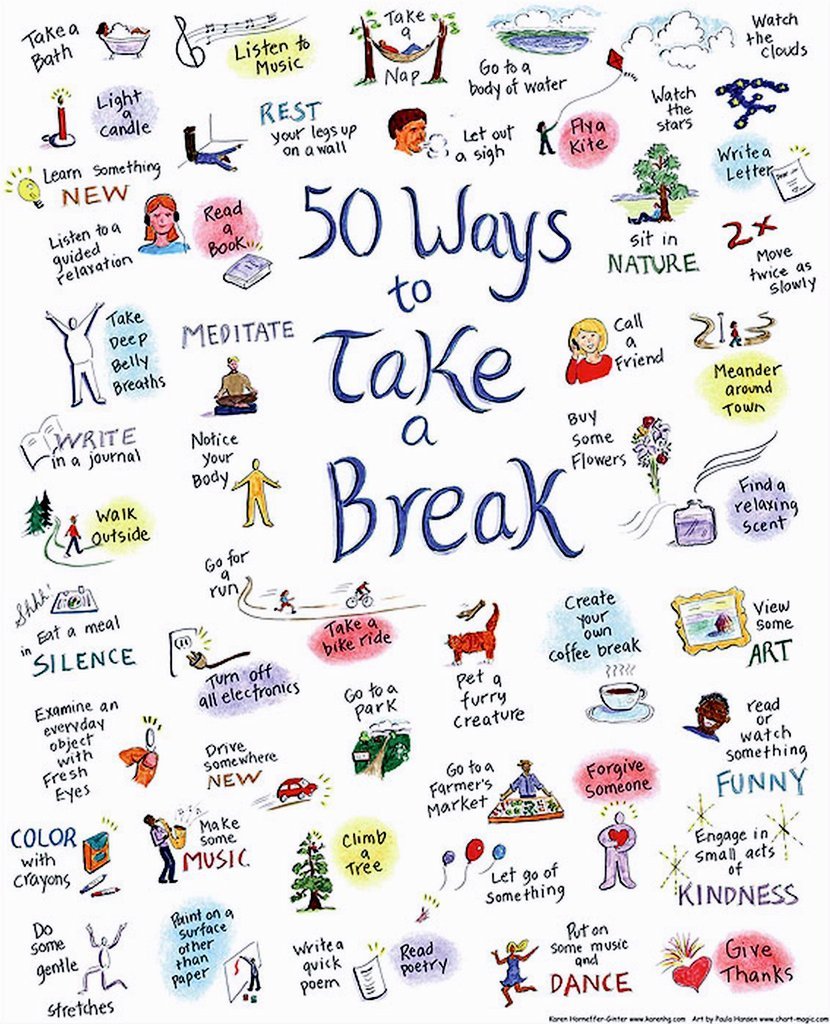Congratulations on getting the job!
To help you to prepare some of the tips on how to get the most out of your first week and create some good work habits.
Introduce yourself to everyone. If you work in an office setting, take a second to swing by all your team members’ desks and briefly say hi. Yes, this move might seem intimidating, but most people will appreciate a quick introduction and look forward to working with you. If you’re remote, drop a short hello message in a Slack channel that everyone can see.
Arrive early every day. Plan to arrive early so that, if you face commuting delays, you actually show up on time. Your commitment to being present can signal to your boss that they can immediately trust you with higher-level tasks. And if you arrive early, you can spend that extra morning time working through all the information that might be overloading you
Nobody expects you to remember all the little details straight away
First and foremost, always remember to be gentle with yourself. In your first week, your manager will likely introduce you to lots of different people, processes, and policies, etc. This can seem overwhelming but remember that nobody expects you to remember all the little details straight away. Having a little notebook with you can be a handy way to write these things down so that you can check back later. It’s also more than OK to ask someone for help if you can’t remember something.
Trying to set some boundaries for yourself is my second best piece of advice. Since you’ll be at your new job for a long time, it’s a good idea to establish some healthy work habits, and now is the perfect moment to do so. Taking a lunch break and refraining from checking business emails after hours are two instances. Gaining some distance from your employment will allow you to appreciate all the other amazing aspects of life as well.
Here are some ideas for personalizing your workstation, assuming you have a designated area. When you start a new work, it’s easy to feel out of place, but a few small personal touches, like a plant, a picture of your loved ones, or your favorite coffee mug, may make it feel lot more homey.
Set realistic expectations and celebrate small wins

I used to be prone to believing that I had to be as knowledgeable and skillful as my coworkers when I started my first full-time job. While I believe it’s vital to have high standards for yourself and the motivation to succeed, I also believe that holding oneself to unattainable goals can be counterproductive because trying to meet these goals and ultimately “failing” can lead to burnout and a bad self-image.
I think it’s crucial to acknowledge any problematic assumptions and consider their usefulness before attempting to dispute them. If they don’t help, I think of methods to refute or question my expectations. My first few days and weeks in a new role were made simpler by realizing that I was a beginning and that I had a supportive environment in which to learn and improve.
Celebrate the little victories when you start a new job, too; I find that to be beneficial! Acknowledging my accomplishments keeps me motivated and makes me feel more at ease, as opposed to merely concentrating on what has to be improved. This is where I think it might be really helpful to ask your boss for feedback or even just to write down any encouraging remarks.
Don’t forget to take… A break! Your first day can be a stressful time, so it’s important to find a moment during the day to breathe
You were hired for a reason, you deserve the opportunity
Being in a strange place and beginning a new career may be rather stressful for me because I’m a pretty timid person. I’m surprised I showed up for any of my first days of work because I always feel like I don’t deserve the opportunity and have 101 things going through my head at once.
But here I am – 5 jobs later – learning to embrace my discomfort (and maybe even grow from it). I’ve realised three things that help me to calm myself when my inner critic tells me I don’t belong there, like I am an imposter.
1. It is not expected of you to know everything, or even anything at all. You were chosen for a reason: they are confident in your ability to perform the job to the highest standard.
2. You’re going to meet people! Give it some time.
3. Lastly, I would like to exhort you to inquire about everything you are unsure of or don’t understand. This will prevent you from making mistakes later on (remember, mistakes are okay).
It’s normal to occasionally feel uneasy or like an imposter. Most of the folks at your new employment have probably experienced something similar at some point.
Believe in your own ability! You are capable of this!
Don’t forget to take… A positive mindset and can-do attitude!
Plan for your first day and ask lots of questions
The uncertainty of leaving on my first day or days was one of the hardest things! I was unsure of a lot of things going into it, like whether I would be able to reheat meals or arrive in time. These two resources may be helpful to you if you feel like you’re in a similar situation:
Asking questions – Before I begin, I usually prefer to ask my boss any questions I have about what to bring, what facilities are accessible, and other crucial details like what to wear. If fortune favors you, you may be allowed to visit your place of employment for a tour or an in-person meeting prior to your official first day!
Creating a plan – How am I going to get there? When should I leave my house in order to be on time, or even fifteen minutes early? To make sure I’m ready to travel, I also like to prepare my meals in advance and put my clothing together the night before.
Remember to plan something to unwind when you get home too!
Don’t forget to take… Lunch, snacks, and a water bottle! Keeping hydrated and fuelled across your first day is super important and sets you up to put your best foot forward.
Don’t forget to take breaks

Taking frequent small pauses keeps me focused, relaxed, and prevents me from becoming overwhelmed by the amount of new material. This might be as simple as taking a short stroll to breathe some fresh air, getting a quick drink, or using the restroom for a short while. If you’re anything like me, though, you find it difficult to ask for a break on your first day because you worry that you’ll come off negatively, but that’s not the case. Your manager won’t mind if you take a break, and I find that it leaves me feeling lot more rested and prepared to socialize and learn more.
Don’t forget to take… A reminder of why you want this job, things you will enjoy and things you are excited about.
Remember, work is only a part of who we are
A new job may be very energy-consuming, and if you’re like me, you may find yourself thinking about work even when you’re not there, especially during the first few weeks of employment. Keeping things in perspective is something I find incredibly helpful—reminding myself that work is just one aspect of who I am and that I have a life outside of work. Making reservations for social activities in advance, such as going to the gym, seeing a friend play soccer, preparing a delicious meal, or having supper with my family, helps me to maintain my balance and set clear limits. This makes me feel more eager to learn and enthusiastic about my new position.
Don’t forget to take… Your calendar/diary! This way you avoid overcommitting yourself by saying ‘yes’ to everything in the moment and ensuring you’re still making time for the other things in life.
Confirm when and how much you’re expected to work. Let’s say you confirm you should only be in the office or available online from 9 a.m. to 6 p.m. every weekday. In that case, you can easily begin planning a proper work-life balance during your first week. Knowing these hours will also give you a sense of your team’s dynamics and the company’s culture. You’ll know your team isn’t overworked and that you’re working with caring people who respect each other’s boundaries.
Ask questions. Admitting you don’t know something and asking for help shows you’re not arrogant. Asking questions the right way can even make you appear confident – state what you do know, then what you don’t. This way, your boss sees you have the right background for the job and just need their support. Once you have that, you’ll be well on your way to becoming a valued employee. The company may even have questions for you in the form of a new-hire survey that way, they can learn from your onboarding experience and improve the process.
First-week job challenges
During your first week at a new job, you might encounter the following obstacles. The good news is they have solutions.
Being overloaded with information
Having to quickly catch up to the rest of your team is one of the most challenging parts of starting a new job, especially if you’re replacing someone. Good managers acknowledge that there will be a learning curve and are understanding of it, but the company cannot stop too soon. As a result, new workers frequently discover that they are inundated with a ton of information practically right away.
According to Stacy Shade, head of studio at Trick 3D, “information overload was the biggest challenge I faced during my first week.” “Taking a few minutes at the end of the day to review notes and jot down questions is what works best for me when I need to synthesize a lot of new information.” I’ve discovered that it’s nearly hard to ask too many questions in the beginning.”
Doing grunt work (or no work at all)
While some new hires do have an overabundance of work, others experience a deficiency in work. You may find yourself performing some trivial activities unrelated to your job duties if your manager or other team members have an exceptionally busy schedule the week you start.
Grunt labour can still teach you a lot about the inner workings of the company, though. However, if you feel that you don’t have enough work, don’t be scared to ask for important job and show initiative. Try to learn something on your own even if everyone else is too busy to guide the way or give responsibilities because sitting about doing nothing but thumbing your nose can reflect negatively on you and determine how you might contribute in a way that fits your new position.
Finding a balance between confidence and arrogance
Excitement in a new work should naturally lead you to want to start contributing ideas straight away. Engaging from the outset demonstrates your passion in working with coworkers and supporting the business. However, there’s a thin line separating hubris and concept confidence. Actually, long-time employees have a tendency to dislike the newcomer who assumes they know everything even when they are just starting out.
“It’s fantastic that every new hire wants to dive right into their role and start contributing,” stated Cheryl Kerrigan, Bluecat’s chief people officer. “On the other hand, the attempted added value could be misinterpreted if one does not possess a foundational understanding of company procedures, standards, and team dynamics. Find your equilibrium and consider any fresh facts before suggesting changes to current practices.
Tip
Rather than presenting your ideas right away, write them down and add to them later. You can recommend them after you’ve had some time to adjust to your new position. Get familiar with the communication tools used by the organization so you can decide how best to start these kind of discussions.
Happyly’s founder and CEO, Caitlin Iseler, advised very dominant individuals to temper their dominance during their first week on the job, particularly if they hold a supervisory position.
She stated, “The best leaders don’t come in like bulldozers.” “Since the company has been successful before they were employed, good leaders approach the workplace with respect and take note of the prevailing atmosphere. In most cases, companies have current protocols in place for a purpose. Consider your surroundings for three months before making any adjustments.
Meeting new colleagues

In the first few days of work, a lot of your new coworkers will probably be amiable and introduce themselves to you. But, you’ll need to carry on the conversation if you want to create long-lasting relationships with your coworkers. It’s hard to recall all the names and faces you meet during those first few days, let alone any specific information about them personally. Shade advised adding new acquaintances to your phone contacts as soon as you get to know them—even if you don’t have their number—and noting things like “lives downtown” or “loves rock climbing.
“Writing down new contacts helps me remember things and makes it easier for me to follow up with them or bring up something from our first conversation when I see them again,” Shade told Business News Daily.
A new hire’s start date is sometimes announced by the employer. It might be a terrific approach to introduce yourself to your new coworkers if you are requested to share some background information. You might even get a connection request from someone who shares your interests.
Learning your team’s dynamics
Your new supervisor and team members won’t be exactly the same as they were at your previous employment. Finding a position within the current dynamic of your team requires you, as a new employee, to become familiar with the preferred communication and work methods of your immediate colleagues.
Although it can be difficult at first to comprehend your team members’ goals and personalities, Kerrigan pointed out that it’s crucial to establish positive rapport and leave a positive impression on them. Shade concurred, stating that spending time determining the expectations of your team will facilitate future goal-setting and communication.
Fitting into the company culture
The interview process gives most new hires a basic idea of the corporate culture, but participation in the culture is not the same as hearing about it. To truly become a part of the company culture, you must accept it once you start working there.
Kerrigan advised, “Be an actively engaged new employee.” “Host a happy hour, take part in charity endeavors, join a committee, and volunteer your time. Since deeds speak louder than words, your coworkers will value your eagerness to contribute to the business culture.
According to Kerrigan, businesses have a responsibility to assist recently hired staff members in feeling engaged, accepted, and part of the team right away. Supervisors should be ready to launch new hires using tried-and-true methods of employee training and provide them with lots of feedback to help them along the way.
New hires must understand exactly what is expected of them within the first week, according to Kerrigan. Make sure to make checklists for each week and month. and plan regular check-ins to keep the enthusiasm going. It fosters a sense of success when the activities and learning are finished by empowering the new hire to take charge of their onboarding process.
Knowing the dress code

Even if formal dress codes seem to be disappearing more and more, you can’t just wear jeans and a T-shirt to your new job. How casual can you get, though? Check your company’s dress code to prevent the shame of arriving underdressed. If you went in person for interviews, try to remember what everyone else was wearing to get ideas for what to wear.
If you operate remotely, you should also take the dress code into account. Although it’s not always possible for your new colleagues to see what you’re wearing, you shouldn’t often show up for team video conferences wearing pyjamas.
Tip
If you have questions about your new job’s dress code, ask your supervisor. This might seem embarrassing, but it shows you take initiative and want to make the right first impression.
Maintaining work-life balance
ssume that in your previous position, you were able to maintain a healthy work-life balance. You may initially experience difficulty adjusting if your new employer expects you to be available on Slack more frequently than your previous one. Additionally, it could be concerning if your supervisor requests you to work several extra hours a week out of the blue. Finding a balance that works better for you and your team may start with voicing your concerns to your manager. If Slack is the favored communication tool at your new employment, be sure you know how to utilize it.
As the initial weeks of a new job might be chaotic and irregular, make an effort to declutter your personal life during this period. In order to wake up feeling refreshed every day, cancel any pointless appointments, accept that your day might not end at your preferred hour, and make sure you got a good night’s sleep. After you’ve spent a few months demonstrating your commitment, you could choose to ask your leader about a shortened work schedule if you realize that you need more personal time each week.









